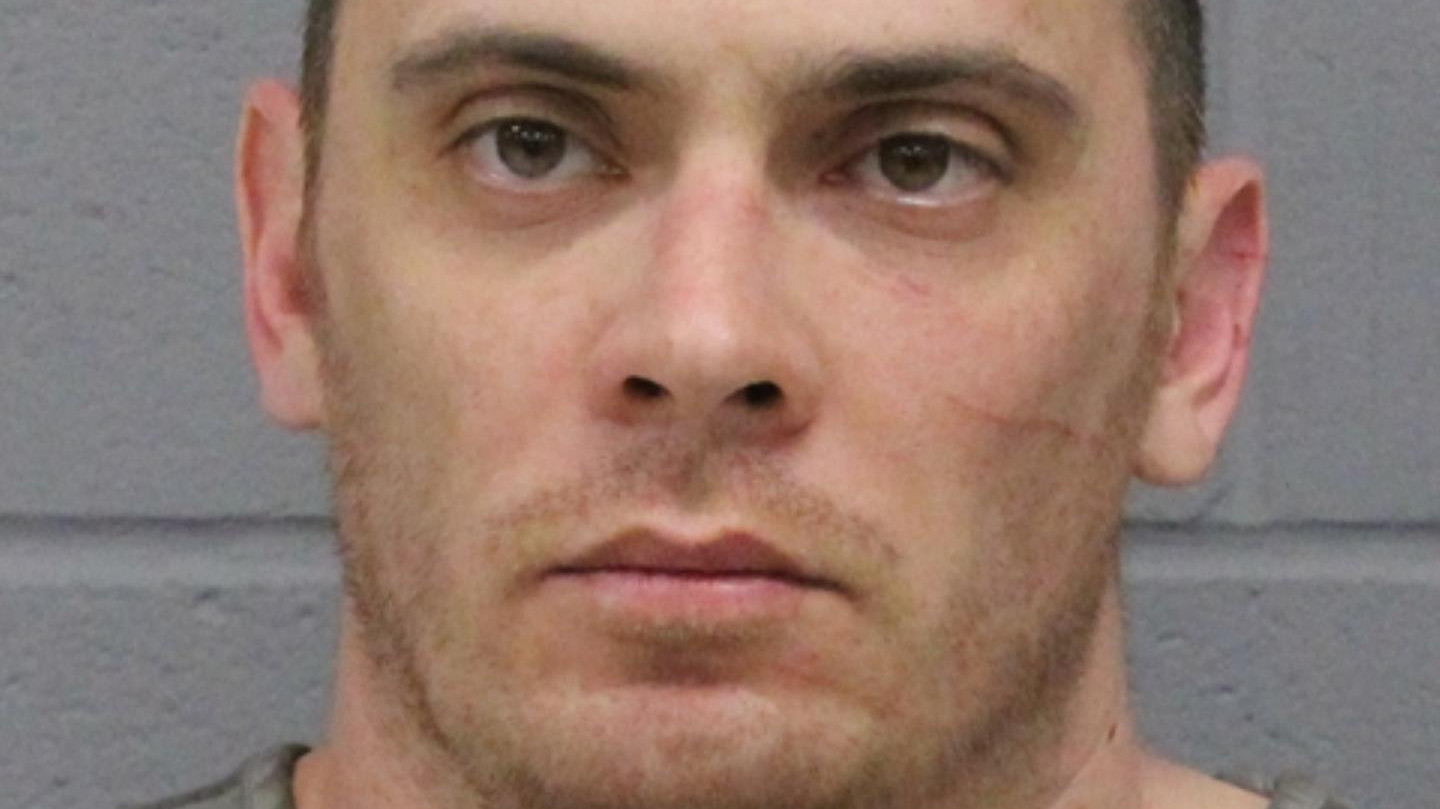

A former infantry officer who killed six people, including his parents, in a mass shooting across two Texas cities in December left the Army soon after he was arrested for assaulting his wife in 2014.
An Army police report first reported by KUT News, an Austin public radio station, shows that Shane James Jr., then an Army 1st lieutenant, was arrested for spouse abuse on post against his wife at Fort Cavazos, which was then Fort Hood. James grabbed his wife and broke her phone to prevent her from calling 911, according to the Military Police report.
James is accused of a shooting spree last month that began in San Antonio, Texas and ended in Austin with six dead and several more wounded. James’ parents were among the dead. James shot several others who survived, including two police officers.
The account of James’ arrest while in the Army fits an emerging view among experts in intimate partner violence that domestic violence is often found in the background of mass shooters.
“There’s a strong connection between domestic violence and mass shootings,” said Ruth Glen, president of Survivor Justice Action, an organization dedicated to ending domestic violence in the U.S.
An Army official confirmed to Task & Purpose that James separated from the Army in 2015, about a year after he was arrested at Fort Cavazos. The Army report of his arrest notes he was charged with “interfering with an emergency phone call,” “assault (domestic disturbance on post),” and “spouse abuse (on post).” He was apprehended, processed and released to his unit. Military police initiated an investigation which found him “responsible for the offense assault,” according to the report.
In December, James shot and killed his parents in San Antonio before driving nearly 80 miles to Austin where he killed four more people, led police on a high-speed chase and injured three others, including two local police officers.
After joining the Army in 2012, James was assigned to the 12th Cavalry Regiment of the 1st Cavalry Division in February 2013 as an Army infantry officer (11A). James had no deployments.
Following his arrest, according to the police report, James was released to his commander.
Two months later, a “police investigations supervisor” reviewed the case, including pictures taken the night of the assault, and decided probable cause did exist to proceed with a case against James.
Army spokesperson Bryce Dubee told Task & Purpose that the Army took administrative actions against James who separated from service in August 2015. Officials did not provide details on the reason for his discharge.
“While the Privacy Act and DoD policy prevent us from releasing personnel information relating to the alleged misconduct, I can say that the Army has several options in acting on such cases even when charges are not brought, to include reprimands or administrative separations,” Dubee said.
Subscribe to Task & Purpose today. Get the latest military news and culture in your inbox daily.
Since there were no charges filed against James, the Army was not required to report him to the National Instant Criminal Background Check System. The system is updated by law enforcement and used for gun purchases. Depending on state laws, it can prevent private firearm purchases by those who have faced domestic violence charges.
Domestic violence is a precursor in many mass shootings
Advocates and experts who study interpersonal violence say that mass shooters often have a history of domestic violence.
“One of the reasons why is because domestic violence is about power and control,” Glenn told Task & Purpose. “One of the dynamics that we theorize about is that we see the mass shooting as a result because the perpetrator has lost control over everything that he or she believes they should have control over.”
One study by researchers at the Johns Hopkins Center for Gun Violence Solutions found that over 59% of mass shootings between 2014 and 2019 were domestic violence related. Researchers also found that in roughly 68% of mass shootings, the perpetrator either killed at least one partner or family member or had a history of domestic violence.
According to reporting by The Trace, a news publication covering gun violence, several of the U.S.’s deadliest mass shootings have been carried out by men with domestic violence in their backgrounds. The Pulse nightclub shooter in Orlando frequently beat his wife. An Air Force veteran who killed 26 people at a church in Sutherland Springs, Texas, in 2017 had been court-martialed for attacking his then-wife and her infant daughter. The Parkland Marjory Stoneman Douglas High School shooter, who was a teenager, was also reportedly abusive toward an ex-girlfriend.
Changing rules around military domestic abuse
The decision not to file charges also highlights the military’s new way of prosecuting criminal offenses, including domestic abuse. James’ case would’ve been handled by the military’s new offices of special trial counsel which changed the prosecutorial decision-making authority from unit commanders over to independent investigators.
With the new authority, each military branch has their own office with special trial lawyers who handle cases where military members are accused of sexual assault, domestic violence, child abuse and murder in the U.S. and abroad.
“I think it would behoove the military to take stronger, more appropriate action when it comes to those areas of violence particularly against women,” Glenn said. “I just think sometimes the bureaucracy gets in the way of even those in the military trying to make that change.”
The latest on Task & Purpose
- What is the oldest military equipment still in use today?
- Arkansas Air Guard wing commander resigns over abortion policy, Governor says
- Marine Security Guard dies in Republic of the Congo
- How the military celebrates the New Year, according to combat veterans
- The history of Thompson “Tommy” guns at war
